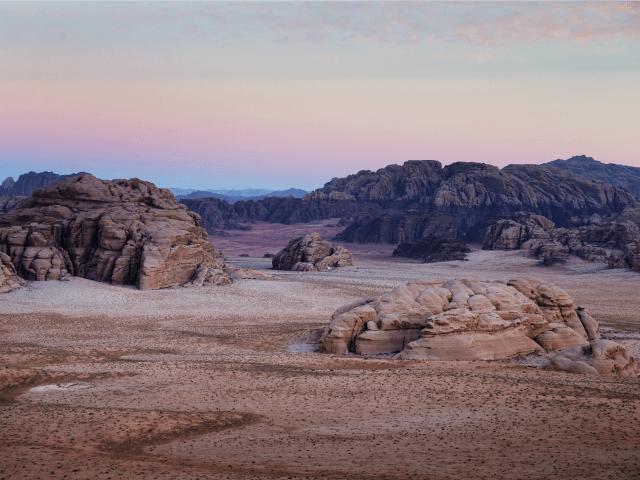ABC News reports: Archaeologists have uncovered three ancient, fortified settlements and what may be the earliest evidence of artificial irrigation systems while excavating in the basalt desert of Jordan.
The sites, which date back approximately 6,000 years to the late fifth and fourth millennia BCE, were located atop volcanic hills at the edge of north-eastern Jordan during surveys between 2010 and 2015.
The archaeologist heading the study for the Orient Department of the German Archaeological Institute said the permanent settlements were a surprising find, and conflicted with earlier hypotheses that pastoralists had only visited the area for specific times of the year — usually during the wet season.
“The interesting thing is that this remote region comes suddenly into our focus as an area where, at a very early stage, high technology either developed or appeared,” Bernd Muller-Neuhof told the ABC.
The findings have also raised a number of questions for the survey, including what kind of climate these residents faced in the fourth millennium BCE and why people chose to settle there, according to Dr Muller-Neuhof.
Read more here.

COMMENTS
Please let us know if you're having issues with commenting.